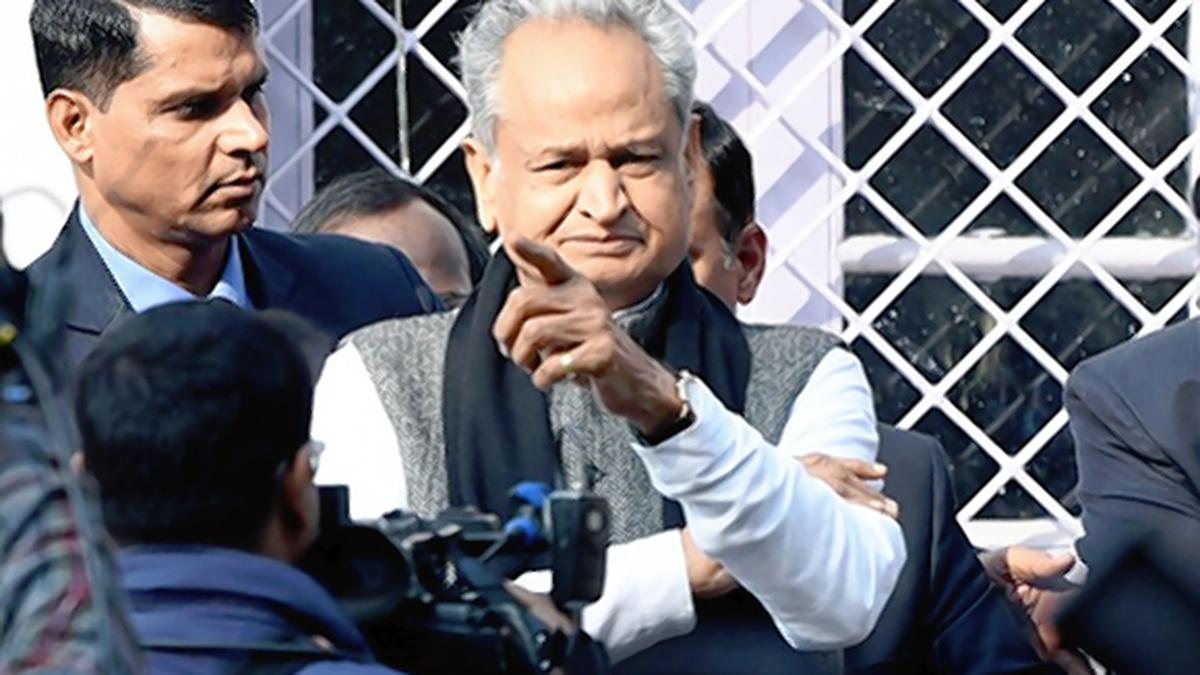
Gehlot’s plea against summons in defamation case denied
The Hindu
Delhi’s Rouse Avenue Court dismissed a plea by former Chief Minister of Rajasthan, Ashok Gehlot, challenging a magistrate court’s order in which he was summoned as an accused in a defamation case
Delhi’s Rouse Avenue Court on December 13 dismissed a plea by former Chief Minister of Rajasthan, Ashok Gehlot, challenging a magistrate court’s order in which he was summoned as an accused in a defamation case filed by Union Minister Gajendra Singh Shekhawat.
Additional Sessions Judge (ASJ) MK Nagpal in a detailed order noted that prima facie, Mr Gehlot made allegations against Shekhawat to ‘’derive political benefit” and defame him.
“Therefore, in view of the above discussion, it is held that even the impugned order dated 06.07.2023 passed by the Ld. ACMM-04 in the above criminal complaint does not suffer from any factual mistake or illegality or impropriety of finding etc. and thus, the same is also being upheld,” the Court said.
Judge Nagpal also upheld the orders of the magistrate court through which the Delhi Police was ordered to conduct an investigation.
The Court noted that no family member of Mr Shekhawat has been named as accused in the First Information Report (FIR) or the chargesheet pertaining to the case.
“Hence, the only reason for such allegations and imputations by the petitioner through these statements is to derive political benefit by denting the image and reputation of the respondent in the eyes of general public, in view of the coming Assembly and Parliamentary elections,” the Court concluded.
To recall, Mr Shekhawat on March 05, had filed a criminal defamation suit against Mr Gehlot for defaming him with remarks on the Sanjivani scam. The complainant, who maintained that the personal attack by Mr. Gehlot has deeply hurt his reputation and that of family, demanded that the court take legal action against the latter and also sought appropriate compensation.

Hampi, the UNESCO-recognised historical site, was the capital of the Vijayanagara empire from 1336 to 1565. Foreign travellers from Persia, Europe and other parts of the world have chronicled the wealth of the place and the unique cultural mores of this kingdom built on the banks of the Tungabhadra river. There are fine descriptions to be found of its temples, farms, markets and trading links, remnants of which one can see in the ruins now. The Literature, architecture of this era continue inspire awe.

Unfurling the zine handed to us at the start of the walk, we use brightly-coloured markers to draw squiggly cables across the page, starting from a sepia-toned vintage photograph of the telegraph office. Iz, who goes by the pronouns they/them, explains, “This building is still standing, though it shut down in 2013,” they say, pointing out that telegraphy, which started in Bengaluru in 1854, was an instrument of colonial power and control. “The British colonised lands via telegraph cables, something known as the All Red Line.”









